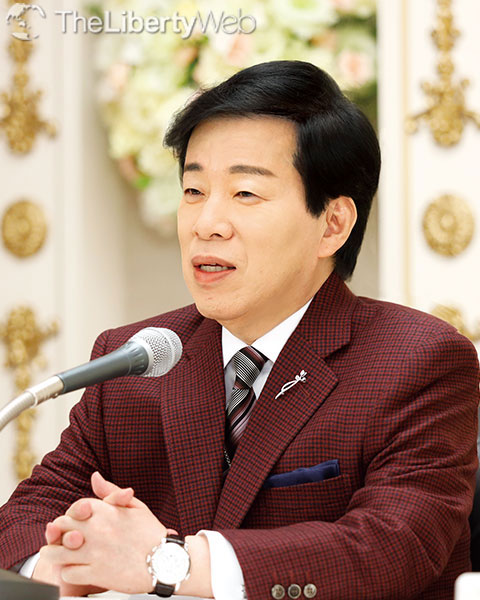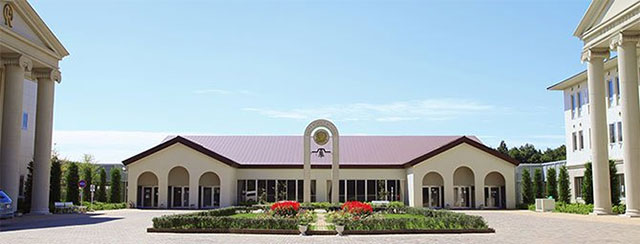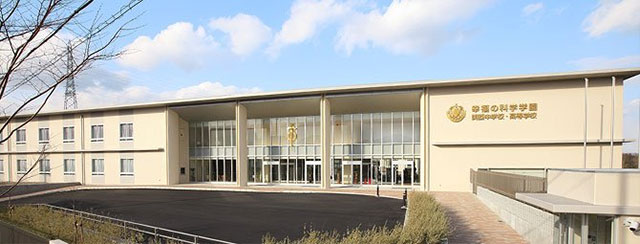A “Wake-Up” Call to Overcome Emotional Trauma (part 2)
World Teacher’s Message No.313
I always advise “try harder” to people who say things like, “I’ve lost my mind”, “I’m carrying old wounds, and my heart is broken”, but it seems difficult for them to get over a broken heart. Any advice would be appreciated.
Excerpt from the lecture titled “I Will Never Say Die”
Given at Kurumehigashi Shibu Shoja of Happy Science on August 2, 2011

In the last issue, I talked about how people who are depressed are “in a state of sleeping and having a nightmare”, and it is important to give them the opportunity to wake up at the perfect time while observing them carefully.
Also, in the end, it’s often the case that it is not the other side’s problem, but our side’s problem.
Even though the other person really wants you to persuade him, if he objects, criticizes, or retorts you, many of you often withdraw. A person like you (referring to the person who asked the question) may be different (audience laughed), but there must be many people whom you wish to help, and (overcome emotional scars) want you to persuade them.
Actually, there are people who want to be guided to Happy Science, but for the time being, they lay out a series of defense systems and ask questions and counter argue like people normally do to religious solicitations.
Of course, there are people who really want you to break through all this and persuade them. However, when you can’t break their defense system, you tend to say, “Okay, I’ll get back to you with the answers” and go home. (Audience laughed)
In a sense, people want to be skillfully persuaded.
So you need to be good at persuading. People complain about various things, criticize, say that their heart was broken and troubled in the past, but most of them are just their excuses, and they really want to get rid of them completely. They want you to cut them off one by one. They want you to say things like, “The right way of thinking is this.” or “You are mistaken” or “Your way of thinking shows that you don’t clearly understand the difference between Happy Science and other religions”.
Not All Drivers Who Cause Accidents Are Criminals
For example, Happy Science Kansai school is about to buy land and build its building. For the time being, we have applied for approval at both the Shiga Prefectural office and Otsu City (at the time of the lecture). There are some people who oppose it in Kyoto and Shiga where the left wing is quite strong (at the time of the lecture), but we already have a school in Tochigi (Nasu main school). Even though we explain carefully, there are people who dislike religion in the first place. These people believe that “religion is opium.”
This is a tough battle, so to speak. They hit the ball with all their might, and wait and see how we hit it back.
People say things like, “There are religions like Aum Shinrikyo, aren’t there?”, but there are many religions. Aum is a group that committed crimes. It’s already proven. They are clearly criminals. For instance, there may be cases where an occupational car driver runs over and kills someone, but not everyone who drives a car is a criminal. If someone says, “You must be a murderer because you drive a car”, people will not accept it so easily.
There are 180,000 religions in Japan. Some of them are good and some are bad. Probably so. However, just because Aum committed a terrible crime, rushing to say that any religion is as bad as Aum is like saying, “When you catch people, think of them as criminals”. It is not acceptable.

(*)Happy Science Nasu School (opened in Nasu-cho, Tochigi prefecture in April,2010), its mission to nurture brilliant people to serve those who are less privileged than they are.

(*)Happy Science Kansai School (opened in Otsu City, Shiga Prefecture in April,2013). Its mission is to develop virtuous, academic, and creative personnel who can contribute to society.
“Religion Is Good” Is Common Sense in the World
It is the mainstream in the world to think that “religion is basically a good thing”. Some countries won’t let you enter if you say, “I don’t believe in religion”. If you say, “I don’t believe in religion,” people would think you are a criminal.
In short, there are countries where people who don’t think of themselves as children of God or of Buddha are considered “wild beasts”; they will be investigated and may be refused entry into the country. Even Christianity won’t bury you if you don’t have faith. They don’t even have the right to enter the grave.
Japanese temples are so tolerant that they will probably take you in right away. I think they will let you in if you take refuge even after you are dead, but in other countries besides Japan, if you don’t have faith, they won’t take you in. It is usually this strict. Since that is the mainstream, I think being persuasive is necessary.
Therefore, it is normal for people to have a general sense of caution, but it is also true that they want to be persuaded, they want to be persuaded well.
So, if you could sense that feeling, you should try to see which part they want to be persuaded by you and make an effort to smoothly remove their problems one by one.
In many cases, people are opposing you just out of caution, so I think it is important to persuade them skillfully.
Saying “Please Understand the Difference” Is the Beginning of Persuasion
“Understanding the difference” is the beginning of culture. Not being able to understand the difference is not sophisticated. Just saying “I want you to understand the difference” is the beginning of reversal.
When someone starts to bring out Aum Shinrikyo and Soka Gakkai, you can say, “Don’t you know the difference? You probably don’t either go to bookstores or don’t read newspapers nowadays. Not being able to tell the difference is lacking a sense of sophistication”. I would like you to show them the difference.
Whether it’s the Shiga Prefectural Government as I mentioned earlier or the Otsu City Hall, the government has clearly decided that Happy Science is not a cult. Even when a left-wing civic activist goes and says, “It’s a cult, it’s a cult,” the administrative side judged that it’s “not a cult.”
That’s why our school in Tochigi is very popular. It opened a year and a half ago in Tochigi Prefecture (at the time of the lecture). It already has a good reputation. The association of the school principals came to see our school, and everyone said, “Ah, I learned a lot, I learned a lot.”, “I have to show your school to my vice-principal,” then they sent vice principals from the vice-principal’s association. Many of them came to see our school.
Principals and vice-principals had come to see my school and said, “Ah this is how you are doing?” “This is how you resolve the problems”, and “How would you solve this kind of problem?” These professional educators are coming to learn from the school which was established a year and a half ago. A scene that is a little hard to believe is unfolding.
This indicates that they don’t have enough materials.
Therefore, I think it is important to have many examples and skillfully use them as persuasive materials.
(end)



















